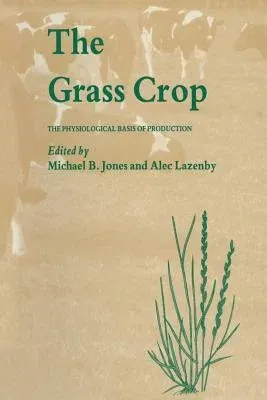M Jones
(Author)The Grass Crop: The Physiological Basis of Production (Softcover Reprint of the Original 1st 1988)Paperback - Softcover Reprint of the Original 1st 1988, 7 January 2012

Qty
1
Turbo
Ships in 2 - 3 days
In Stock
Free Delivery
Cash on Delivery
15 Days
Free Returns
Secure Checkout
Part of Series
World Crop
Print Length
369 pages
Language
English
Publisher
Springer
Date Published
7 Jan 2012
ISBN-10
9401070296
ISBN-13
9789401070294
Description
Product Details
Author:
Book Edition:
Softcover Reprint of the Original 1st 1988
Book Format:
Paperback
Country of Origin:
NL
Date Published:
7 January 2012
Dimensions:
22.86 x
15.24 x
2.03 cm
ISBN-10:
9401070296
ISBN-13:
9789401070294
Language:
English
Location:
Dordrecht
Pages:
369
Publisher:
Series:
Weight:
517.09 gm

